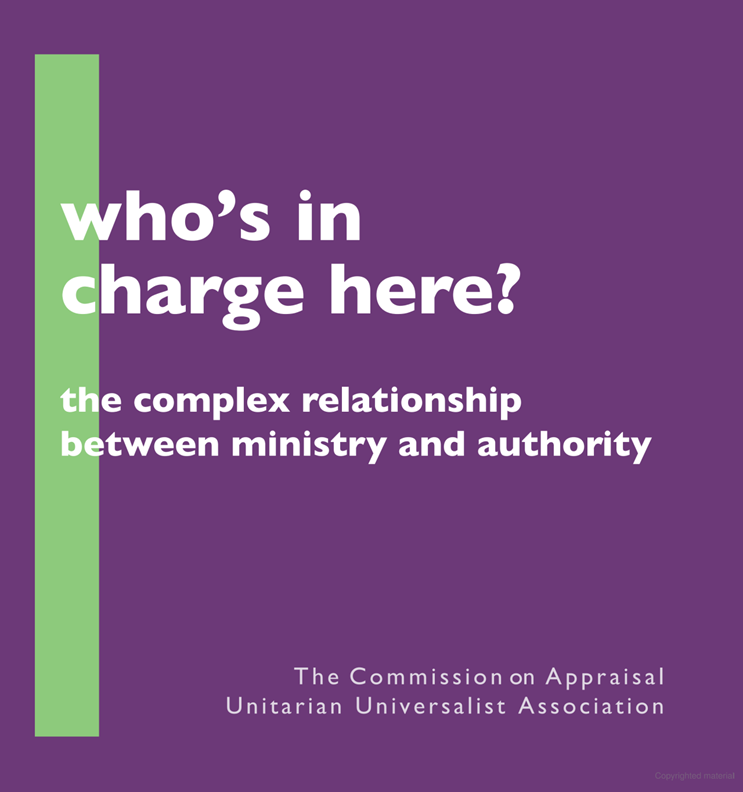When the Unitarian Universalist Association was created in 1961, it established a standing body called the Commission of Appraisal, consisting of 9 members, elected at the General Assembly.
The Commission’s mission is to provoke deep reflection and to evoke timely, creative transformation of Unitarian Universalism, our congregations, and the Unitarian Universalist Association.
None of the members can hold a salaried position in the Association during their service and are expected to act independently, examining the overriding challenges and opportunities in Unitarian Universalism and reporting to the General Assembly at least once every 4 years. (Our own Rev. Xolani Kacela is a past member of the Commission.)

The topics of these reports provide rich insights into not only specific issues, but the rich and living tradition of UU as a whole. Over the last 20-plus years, the commission has considered wide-ranging topics and issues in our faith, such as class, covenant, theological diversity, congregational polity, and membership. The report published in 2013 provides some interesting insights for anyone involved in congregational leadership and life: Who’s in Charge Here? The Complex Relationship between Ministry and Authority. Although hard copies are available from the UUA bookstore, the reports are all freely available on the UUA website here: https://www.uua.org/uuagovernance/committees/coa/reports
UU history has a unique identity when it comes to this relationship. One of our foundational documents, the Cambridge Platform of 1648, gave each congregation the authority to hire and fire a minister. The same document identified clergy as valued leaders whose authority came from their education and vocation. It has been a complex dance ever since.
This is unlike the structure of many denominations with centralized and hierarchical institutional power that assigns and transfers clergy at will. Our UU story was further complicated by the rise of a Humanist ethos in our denomination in the 20th century and the post-war Fellowship movement, where many small congregations were created without the necessity/calling minister at all.
How these relationships work, and more importantly, how we stay true to our shared values and covenant together to make them work, are important and ongoing considerations. As this church enters its second year of Interim Ministry and begins the search for a new Settled Minister, it seems an appropriate time to consider the challenges, opportunities, and contextual frameworks of this structure.
At the end of the report is a Discussion Plan that I will be using as the format for a one-session ARE program on Sunday, August 24, after the service. All that is required for participation is to read the report before the session and let me know if you are planning on attending. We will meet in the Conference Room in Building 3.




